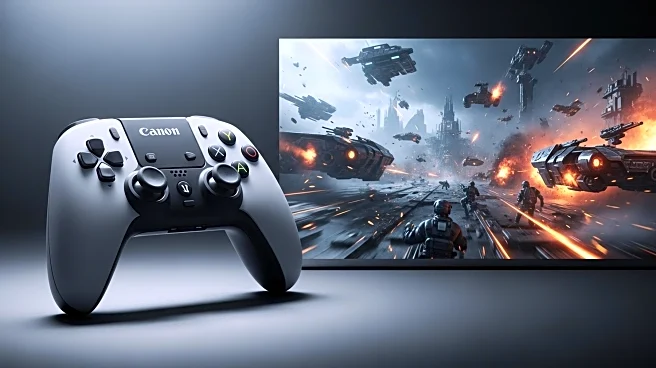What's Happening?
Battlefield 6 developers faced significant challenges in optimizing the game for the Xbox Series S due to its limited memory capacity. Despite the scalability of the Frostbite engine, the Series S required specific optimizations to ensure stable performance. Christian Buhl, the technical director, explained that the team focused on memory optimization, which improved the game's stability across all platforms. The developers conducted extensive testing to resolve memory issues, ultimately achieving a smooth 60 frames per second on the Series S. While the game is set to launch on October 10 for Xbox Series X/S, PS5, and PS5 Pro, EA has not confirmed its availability on the Switch 2.
Why It's Important?
The successful optimization of Battlefield 6 for the Xbox Series S is crucial for players using this console, which is less powerful than its counterparts. Ensuring a smooth gaming experience on the Series S broadens the game's accessibility, allowing more players to enjoy it without needing high-end hardware. This development highlights the importance of accommodating various hardware capabilities in the gaming industry, potentially influencing future game development strategies. The focus on optimization also reflects the industry's commitment to delivering quality experiences across different platforms.
What's Next?
With Battlefield 6 set to launch soon, players can anticipate a well-optimized experience on the Xbox Series S. The developers' efforts may lead to further enhancements and updates post-launch, ensuring continued performance improvements. Additionally, the possibility of the game being available on the Switch 2 remains uncertain, but the developers' acknowledgment of the console's gyro controls suggests potential future compatibility. As the gaming industry evolves, developers may increasingly focus on optimizing games for a wider range of hardware, enhancing accessibility and user experience.
Beyond the Headlines
The challenges faced by Battlefield 6 developers underscore the complexities of game development in an era of diverse hardware capabilities. This situation highlights the need for innovative solutions to optimize performance across platforms, which could drive technological advancements in game engines and development tools. The emphasis on memory optimization may also influence future game design, encouraging developers to create more efficient and scalable games. As gaming technology progresses, the industry may see a shift towards more inclusive and adaptable gaming experiences.










